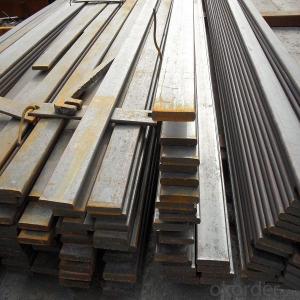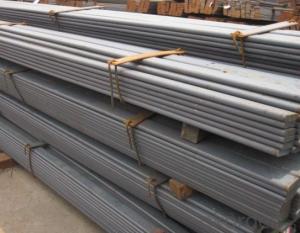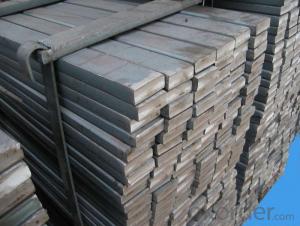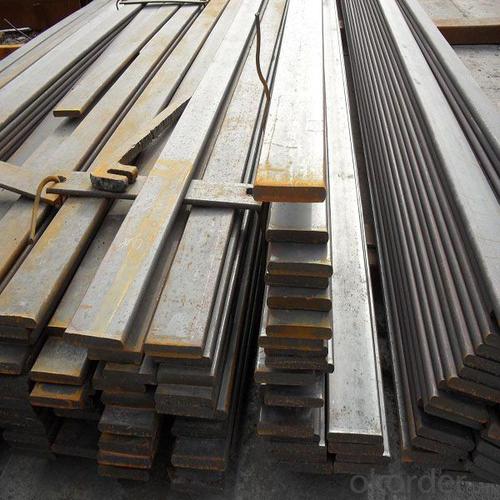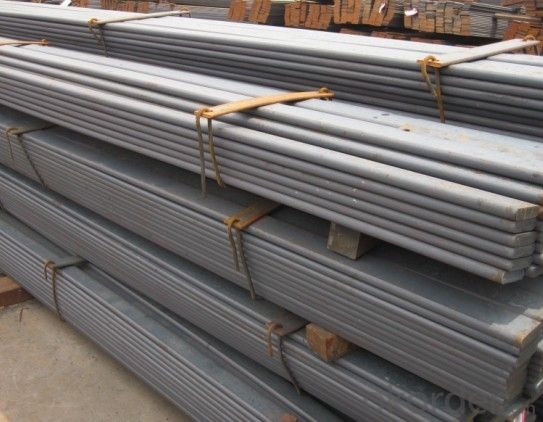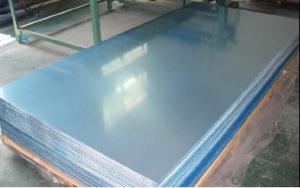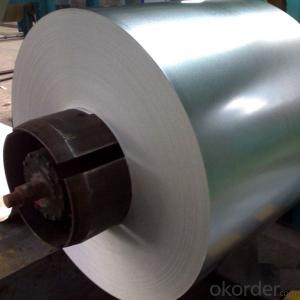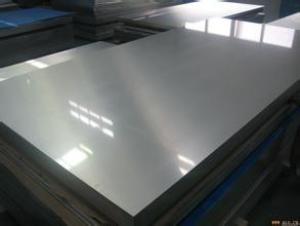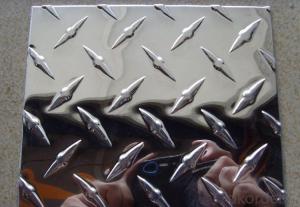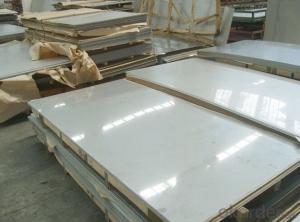Spring Steel Flat Bar ASTM Standard China Supplier
- Loading Port:
- Tianjin
- Payment Terms:
- TT OR LC
- Min Order Qty:
- 2000 PCS
- Supply Capability:
- 40000 PCS/month
OKorder Service Pledge
OKorder Financial Service
You Might Also Like
China Supplier ASTM Spring Steel Flat Bar Details
| Standard: | JIS,AISI,GB,DIN,EN,JIS, AISI, ASTM, GB ect | Dimensions: | 3mm-20mm | Grade: | 300 Series |
| Place of Origin: | China (Mainland) | Width: | 15mm-200mm | Model Number: | 321 304 304l 316 316l 321 |
| Type: | Flat | Application: | Boiler heat exchanger,machinery and hardware fields ect | Shape: | Square |
| Certification: | BV | Special Use: | Valve Steels | Material: | 304 316 317L 321 310S 430 904L ect |
| Surface: | 2B 8K HL NO.1 BA ect | Length: | 2000mm-6000mm | Quality: | Excellent and high quality control |
Packaging & Delivery
| Packaging Detail: | Standard seaworthy packing or as per your requirement |
| Delivery Detail: | About 3-5 days |
Features of China Supplier ASTM Spring Steel Flat Bar
The appearance of cold-rolled products gloss is good, beautiful;
Excellent high temperature strength;
Excellent work-hardening (after processing weakly magnetic)
Non-magnetic state solution
Specifications of China Supplier ASTM Spring Steel Flat Bar
1. Standard: GB ASTM, JIS etc
2. Grade: 304 316 317 321 430 904L ect
3. Size: 19*3 mm-140*12 mm
4. Thickness: 2mm-20mm
5. Width: 15m-200mm
6. Shape Manufactured: Flat bar
7. Length: 2m-6m or as customers' request
8. Surface finish: Black & Pickled & Bright
9. Manufacture technology: Cold drawn/cold rolled/hot rolled
China Supplier ASTM Spring Steel Flat Bar Pictures
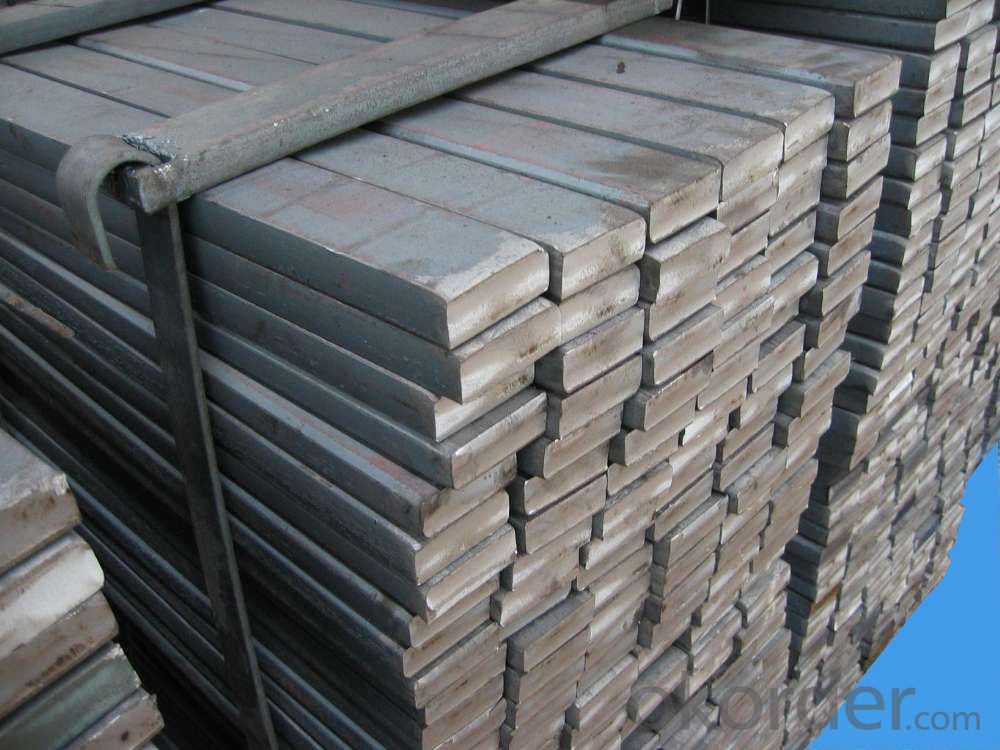
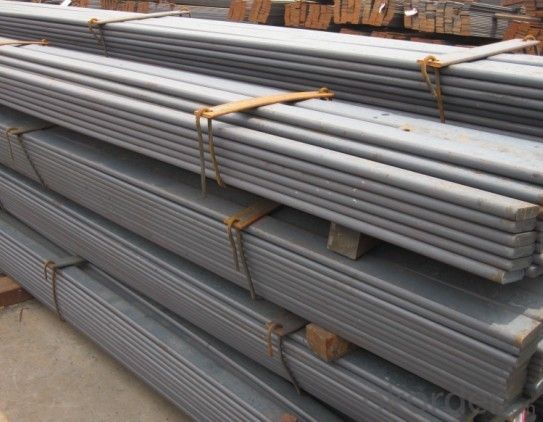
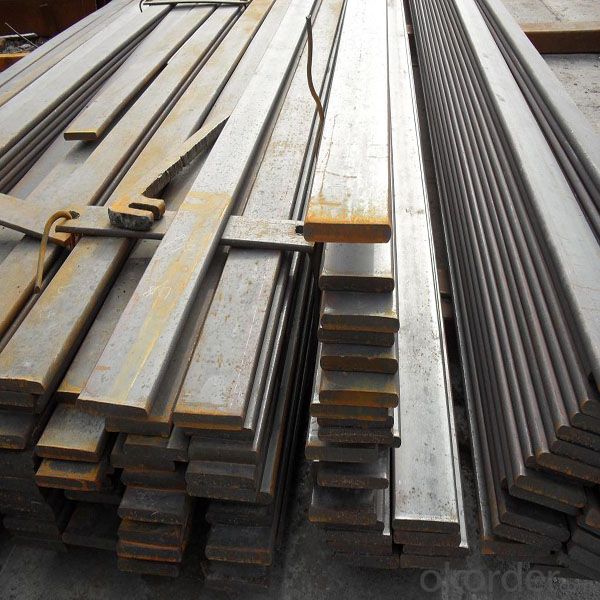
- Q: What is the hardness of steel sheets?
- The hardness of steel sheets can vary depending on the specific type and grade of steel being used. However, steel sheets are generally known for their high hardness, as they are often heat-treated or alloyed to achieve desired hardness levels.
- Q: How do steel sheets compare to fiberglass sheets?
- Steel sheets and fiberglass sheets have various differences in terms of strength, weight, and durability. Steel sheets are generally stronger and more rigid than fiberglass sheets, making them suitable for applications where high strength is required. They also have better resistance to impact and fire, making them safer in certain environments. However, steel sheets are heavier and more prone to corrosion compared to fiberglass sheets. Fiberglass sheets are lighter, have better resistance to chemicals and weathering, and are non-conductive, making them ideal for electrical applications. Additionally, fiberglass sheets are easier to handle and install due to their flexibility. Overall, the choice between steel and fiberglass sheets depends on the specific application requirements and priorities.
- Q: Can steel sheets be used for HVAC applications?
- Yes, steel sheets can be used for HVAC (Heating, Ventilation, and Air Conditioning) applications. Steel sheets are commonly used in the construction of HVAC ductwork due to their strength, durability, and fire resistance properties. They can be easily fabricated into various shapes and sizes to meet the specific requirements of HVAC systems. Additionally, steel sheets are resistant to corrosion, which is important in HVAC applications where moisture and condensation can occur. Overall, steel sheets are a suitable material choice for HVAC applications due to their mechanical properties and ability to withstand the rigors of heating, ventilation, and air conditioning systems.
- Q: Can steel sheets be used for manufacturing medical devices?
- Yes, steel sheets can be used for manufacturing medical devices. Steel is a strong and durable material that can withstand sterilization processes, making it suitable for various medical applications. Additionally, steel can be easily formed into different shapes, allowing for the production of intricate medical devices.
- Q: Can steel sheets be used in high-temperature applications?
- High-temperature applications can make use of steel sheets, as steel possesses exceptional heat resistance and can endure high temperatures while retaining its structural integrity. The suitability of steel for such applications is heavily influenced by its specific type and composition. Stainless steel or heat-resistant steel, for instance, are specifically engineered to withstand exceedingly high temperatures and are widely utilized in industries like aerospace, automotive, and manufacturing. These steel sheets are applicable in various high-temperature settings including furnaces, boilers, exhaust systems, and heat exchangers, among others. Nevertheless, it is crucial to consider factors such as the precise temperature range, duration of exposure, and the presence of any potentially corrosive elements in the high-temperature environment to ensure the selected steel sheet is suitable for the intended purpose.
- Q: Are the steel sheets suitable for outdoor signage?
- Yes, steel sheets are suitable for outdoor signage. Steel is known for its strength, durability, and resistance to weather conditions. It can withstand harsh outdoor environments, including extreme temperatures, rain, wind, and sunlight, without warping or deteriorating. The thickness of steel sheets can be adjusted based on the size and design of the signage to ensure stability and longevity. Additionally, steel sheets can be easily customized and painted to match the desired aesthetic, making them a popular choice for outdoor signage projects.
- Q: What is the average bending radius for steel sheets?
- The bending radius of steel sheets is subject to variation depending on factors such as thickness, grade, and steel type. Nevertheless, in the case of mild steel sheets, the minimum bending radius typically equates to roughly four times the sheet thickness. To illustrate, if the sheet thickness measures 1.6mm, the minimum bending radius would be approximately 6.4mm. It is crucial to recognize that this serves as a general principle, and particular bending specifications may deviate depending on the intended application and desired result.
- Q: Can steel sheets be used for cladding or façade applications?
- Yes, steel sheets can be used for cladding or façade applications. Steel is a versatile and durable material that can provide structural support, protection, and an aesthetically pleasing appearance to buildings. It is commonly used for cladding and façade applications due to its strength, resistance to weathering, and variety of finishes available.
- Q: What is the average weight of a steel sheet?
- The average weight of a steel sheet can vary depending on its dimensions, thickness, and type of steel used. However, as a general guideline, a common steel sheet with a thickness of 1mm and a size of 1m by 1m would typically weigh around 7.85 kilograms. It's important to note that this is just an approximation, and the actual weight can vary based on the specific characteristics of the steel sheet. To get an accurate weight, it is best to consult the manufacturer or refer to the steel sheet's specifications.
- Q: Can steel sheets be used for conveyor belts?
- Yes, steel sheets can be used for conveyor belts. Steel sheets are often used as the base material for conveyor belts due to their strength, durability, and resistance to high temperatures. They provide excellent support for carrying heavy loads and are commonly found in industries such as mining, automotive, and manufacturing.
Send your message to us
Spring Steel Flat Bar ASTM Standard China Supplier
- Loading Port:
- Tianjin
- Payment Terms:
- TT OR LC
- Min Order Qty:
- 2000 PCS
- Supply Capability:
- 40000 PCS/month
OKorder Service Pledge
OKorder Financial Service
Similar products
Hot products
Hot Searches
Related keywords
